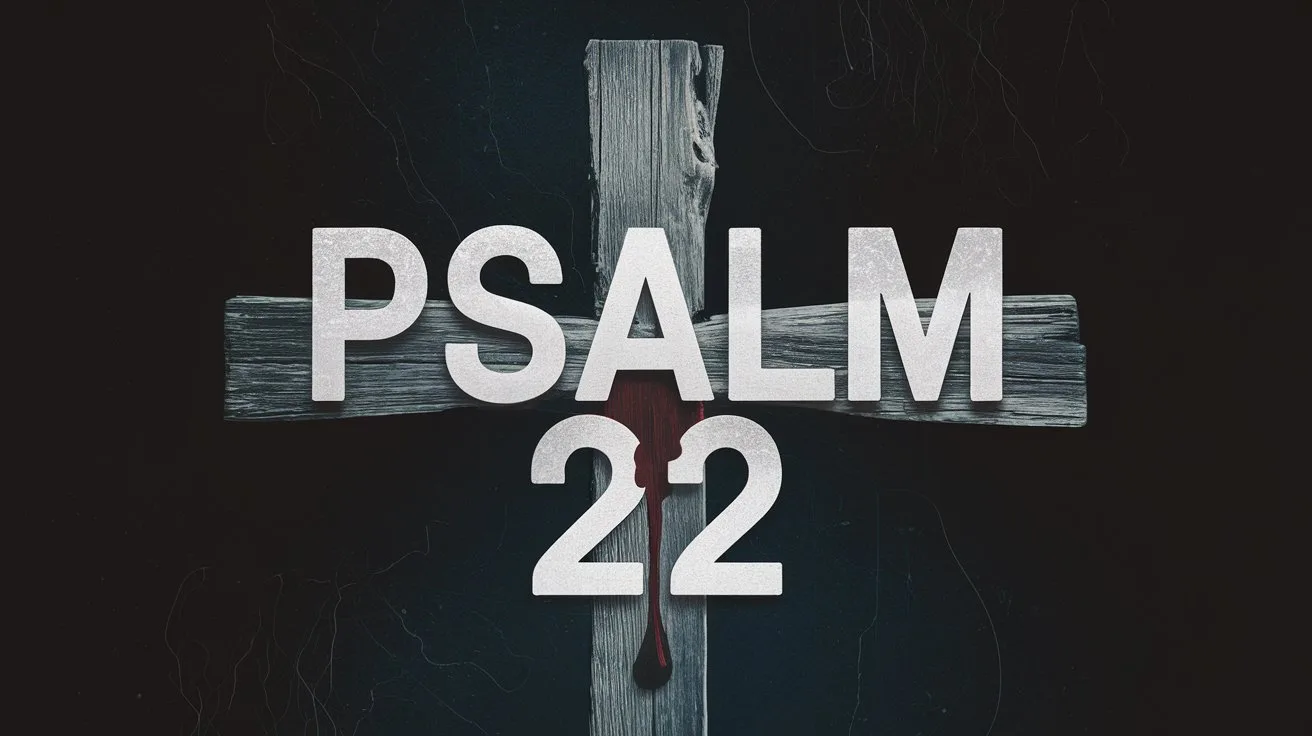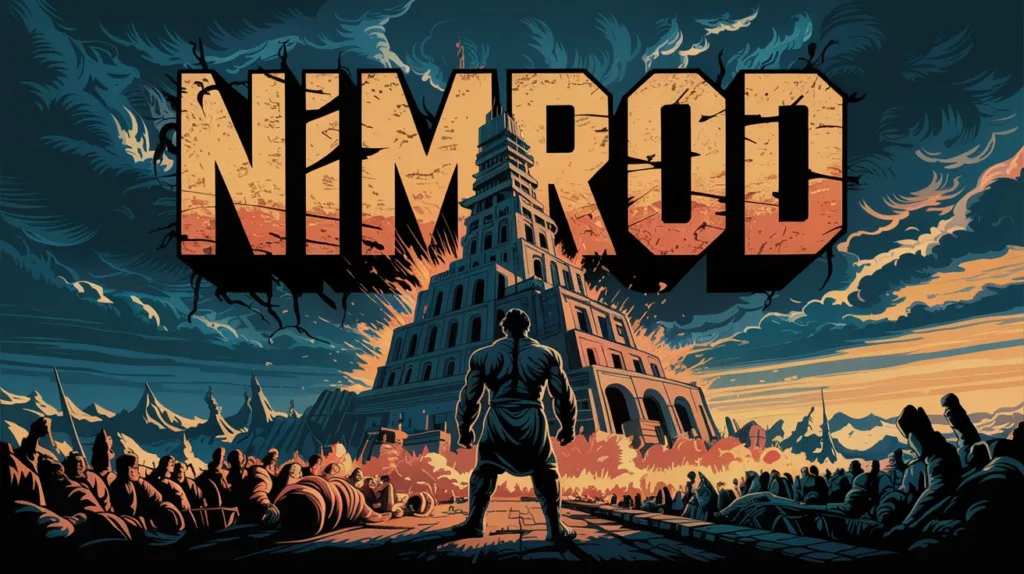Psalm 22 is one of the most profound Messianic psalms in the Bible. Written by David under the inspiration of the Holy Spirit, it vividly describes the suffering, agony, and ultimate triumph of the Messiah, Jesus Christ. When Jesus cried out from the cross, “My God, My God, why have You forsaken Me?” (Matthew 27:46), He was directly referencing this psalm, not to declare that He was abandoned, but to point the people to this prophetic fulfillment of His work.
This study will examine Psalm 22 in its three major sections:
The Cry of the Messiah in Distress (Verses 1-11)
The Suffering of the Crucified One (Verses 12-21)
The Triumph and Victory of the Messiah (Verses 22-31)
The Cry of the Messiah in Distress (Psalm 22:1-11)
The Opening Cry: “My God, My God, Why Have You Forsaken Me?”
Psalm 22:1
“My God, My God, why have You forsaken Me? Why are You so far from helping Me, and from the words of My groaning?”
This opening cry was spoken by Jesus on the cross (Matthew 27:46, Mark 15:34), but it is not a declaration of abandonment; it is a prophetic reference to Psalm 22. In Jewish tradition, quoting the first line of a psalm was a way to reference the entire psalm. Jesus was pointing the people to this prophecy to show that it was being fulfilled before their very eyes!
The next verses clarify that God had not truly forsaken David (and ultimately Jesus), but that the psalmist feels temporarily abandoned in His suffering.
Psalm 22:2-3
“O My God, I cry in the daytime, but You do not hear; and in the night season, and am not silent. But You are holy, enthroned in the praises of Israel.”
The emphasis here is not that God has rejected the Messiah, but that God’s plan is being carried out despite the suffering. Jesus, in His humanity, experienced the depth of suffering, but never lost trust in the Father.
Trust in the Father’s Deliverance
Psalm 22:4-5
“Our fathers trusted in You; they trusted, and You delivered them. They cried to You, and were delivered; they trusted in You, and were not ashamed.”
Even in suffering, the psalmist (and ultimately Jesus) acknowledges that God is faithful. He has always been the deliverer of His people.
Psalm 22:9-10
“But You are He who took Me out of the womb; You made Me trust while on My mother’s breasts. I was cast upon You from birth. From My mother’s womb You have been My God.”
This verse, written by David, emphasizes God’s constant presence in David’s life. He was not abandoned; rather, His suffering had a purpose in God’s plan.
The Suffering of the Crucified One (Psalm 22:12-21)
The Description of the Crucifixion
Psalm 22:12-13
“Many bulls have surrounded Me; strong bulls of Bashan have encircled Me. They gape at Me with their mouths, like a raging and roaring lion.”
The “bulls of Bashan” in Psalm 22:12 symbolize the powerful and oppressive enemies of the Messiah, particularly the religious leaders, Roman authorities, and the mocking crowd that surrounded Jesus during His crucifixion. Bashan, a region known for its well-fed, strong cattle (Deuteronomy 32:14, Amos 4:1), metaphorically represents arrogant and ruthless oppressors who sought to destroy Him.
Psalm 22:14
“I am poured out like water, and all My bones are out of joint; My heart is like wax; it has melted within Me.”
This describes the physical agony of the crucifixion. The stretching of Jesus’ body on the cross would have pulled His bones out of joint, and extreme dehydration would have made Him feel poured out like water.
Psalm 22:15
“My strength is dried up like a potsherd, and My tongue clings to My jaws; You have brought Me to the dust of death.”
Jesus suffered severe thirst on the cross (John 19:28), and was nearing death.
The Prophecy of Piercing and Casting Lots
Psalm 22:16
“For dogs have surrounded Me; the congregation of the wicked has enclosed Me. They pierced My hands and My feet.”
This is a direct prophecy of crucifixion: a method of execution unknown in David’s time! Jesus’ hands and feet were pierced as He was nailed to the cross (Luke 24:39-40).
Psalm 22:17-18
“I can count all My bones. They look and stare at Me. They divide My garments among them, and for My clothing they cast lots.”
This prophecy was literally fulfilled when the Roman soldiers divided Jesus’ garments and cast lots for His tunic (John 19:23-24).
The Messiah Prays for Deliverance
Psalm 22:19-21
“But You, O Lord, do not be far from Me; O My Strength, hasten to help Me! Deliver Me from the sword, My precious life from the power of the dog. Save Me from the lion’s mouth and from the horns of the wild oxen! You have answered Me.”
The prayer for deliverance is not a prayer of despair; it is a prayer of trust. Jesus knew His suffering had a purpose, and He cried out knowing that victory would come.
The Triumph and Victory of the Messiah (Psalm 22:22-31)
The Turn from Suffering to Victory
Psalm 22:22
“I will declare Your name to My brethren; in the midst of the assembly I will praise You.”
This verse is quoted in Hebrews 2:12, showing that Jesus’ suffering leads to victory and praise.
Psalm 22:24
“For He has not despised nor abhorred the affliction of the afflicted; nor has He hidden His face from Him; but when He cried to Him, He heard.”
This is the key to the entire psalm!
- God did NOT forsake Jesus!
- God did NOT turn His face away from Him!
- God heard His cry!
This confirms that Jesus’ suffering was part of God’s plan, not an act of divine abandonment.
The Kingdom of the Messiah
Psalm 22:27-28
“All the ends of the world shall remember and turn to the Lord, and all the families of the nations shall worship before You. For the kingdom is the Lord’s, and He rules over the nations.”
Jesus’ death led to the salvation of the nations! Through His sacrifice, the gospel has gone forth to the ends of the earth.
Psalm 22:30-31
“A posterity shall serve Him. It will be recounted of the Lord to the next generation, they will come and declare His righteousness to a people who will be born, that He has done this.”
The final declaration is one of completion—just as Jesus said on the cross:
“It is finished!” (John 19:30)
My Final Thoughts
Psalm 22 is not a cry of abandonment but a prophetic declaration of the Messiah’s suffering and ultimate victory. Jesus, in His agony, pointed to this psalm to reveal that His crucifixion was the fulfillment of God’s divine plan. Though He endured unimaginable pain, He was never truly forsaken; God had not turned His face away, but was present in the moment of redemption.
The suffering of Christ led to salvation, and His cry from the cross was not one of despair, but of fulfillment, pointing to the triumph that the psalm so beautifully concludes with. From agony to glory, from suffering to praise, Psalm 22 unveils the deeper reality that the cross was not the end; it was the gateway to victory. Jesus’ sacrifice has brought reconciliation, and through Him, all nations now worship the Lord. His work is finished, His name is declared among His brethren, and His righteousness is proclaimed to all generations.





 Get the book that teaches you how to evangelize and disarm doctrines from every single major cult group today.
Get the book that teaches you how to evangelize and disarm doctrines from every single major cult group today.